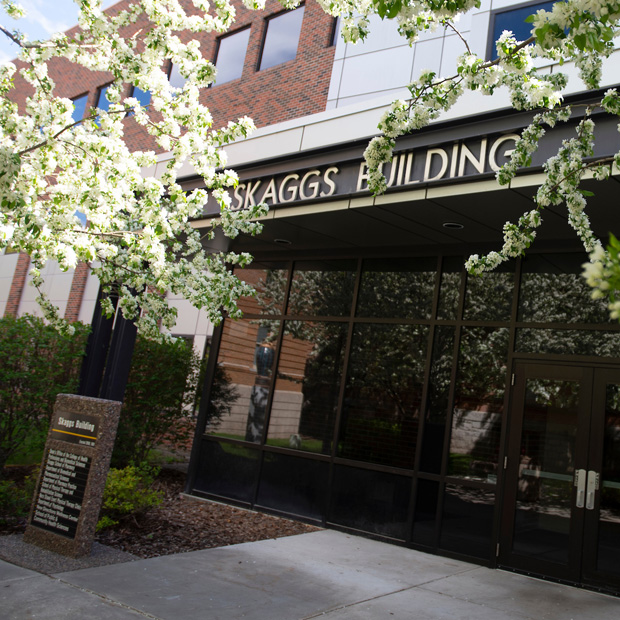Graduate
Integrative Physiology
MS in Integrative Physiology
The Master’s degree in Integrative Physiology focuses on exercise science, including both a research concentration for students with careers directed toward terminal degrees (clinical or research doctorates), and an applied concentration for students with career interests in clinical (e.g., cardiac rehabilitation), fitness/wellness, coaching, and training.
PhD in Integrative Physiology and Rehabilitation Sciences
The Doctoral degree in Integrative Physiology and Rehabilitation Sciences serves research-minded students with a career interest in academia, industry, and as an additional credential for collaborative work with physical therapy and other rehabilitation sciences
Pharmaceutical Sciences and Drug Design
Students in the PhD and MS programs in Pharmaceutical Sciences and Drug Design, study and perform research in a realm of disciplines such as cardiovascular pharmacology, medicinal chemistry, pharmacogenetics, and cancer research. Students with a background in the biological, biomedical, or chemical sciences are encouraged to consider graduate study in this program.
Medicinal Chemistry
Students in the PhD and MS programs in Medicinal Chemistry use a combination of chemistry, biology, pharmacology, and computation to research the relationships between chemical structure and biological activity. In addition to the general topics listed above, students in this program will specific focus and expertise in the study of Neuroscience. Through integrative and experiential research and classes, students investigate the structure, function and diseases of the central nervous system with the goal of developing small molecules and drugs that help study and treat diseases such as Alzheimer's, ALS, Parkinson's, stroke, and depression.
Neuroscience
The Neuroscience Graduate Program (NGP) is a dynamic program focused on current neuroscience concepts and multidisciplinary techniques to train & grant students the Ph.D. degree in Neuroscience. Faculty available to mentor students come from various UM Departments and specialize in a variety of areas including neurochemistry, neuromolecular dynamics and drug design, cellular neurobiology and physiology, behavioral neuroscience, biophysics, and neurobiology of disease.
Toxicology
The graduate program in toxicology works hand-in-hand with the research facilities within the CEHS with dedicated staff scientists available for providing training in novel technologies. The friendly, collaborative nature of the faculty facilitates students and faculty to concentrate on learning and research. The graduate program emphasizes one-on-one faculty-student interactions. Extensive research and graduate training funding along with the research facilities provide students with overall resources to conduct research at the highest levels. Areas of research emphasis in this program include, but are not limited to, epidemiology and exposure, epigenetics, gastrointestinal, genetics, and nanotechnology.
